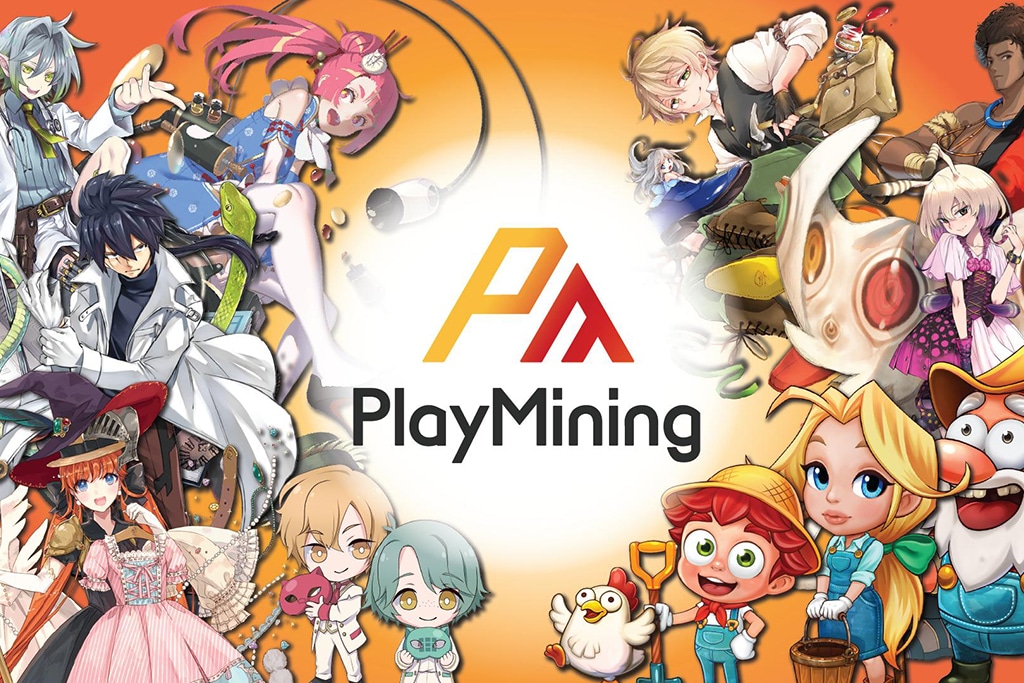
Please check out latest news, expert comments and industry insights from Coinspeaker's contributors.
The latest Web3 game to launch on the PlayMining platform is Dragon Ramen, a cooking simulation/RPG mashup game for both iOS and Android mobile and PC devices.

When a big-name video game development studio launches a successful new title, fans can expect to see the game turn into a franchise complete with sequels, character merchandise and multimedia spin-offs such as comics and animation. Such offerings are expected in the video game industry – a global market worth over US$200 billion in 2022 that is expected to grow to over US$580 billion by 2030, according to a report by Grand View Research – with fans being very loyal to the series they love and often snap up every related purchase they can find.
However, it can be notoriously difficult for smaller indie development studios to build on their Intellectual Property (IP) in the same way as the big wigs, especially when developing for popular consoles and mobile devices. Even with a successful game under their belts, a large chunk of the profits tends to be captured upstream by distributors and other middlemen – the largest distribution channels such as PlayStation, Nintendo, Microsoft and Apple take around 30 percent of profits on sales, for example – while creators earn comparatively little.
New opportunities are arising in the Web3 GameFi space, however, a movement that is rewarding players for their participation in the game ecosystem, as well as studios with fairer representation. While GameFi is still a young addition to the industry, a report by Crypto.com projects the blockchain gaming market to grow to US$50 billion by 2025, representing a sizable portion of the total video gaming space.
One Web3 company that is taking great strides to support game development studios is Digital Entertainment Asset (DEA). Their entertainment site PlayMining provides both a platform upon which companies can launch their Web3 NFT games, as well as an NFT marketplace where IPs can be monetized with collectible images and other multimedia offerings. They also have a Metaverse project called the PlayMining Verse, giving creators and studios even further avenues to build out their IPs in creative ways that fans will love to interact with.
“PlayMining is an all-in-one Web3 content platform where a strong community of players is fostered through unique rewards and offerings not found in traditional gaming spaces,” said DEA CSO Tatsuya Kohrogi. “Players can profit while enjoying top-quality Play-and-Earn games, with a variety of unique NFT tie-in content on our marketplace that makes the gaming experience even better.”
The NFT marketplace is also notable for paying out royalties to creators of both official and fan art. All NFTs on the marketplace are purchased with DEA’s own $DEAPcoin token, which is also Japan’s first and currently only P2E token officially approved by the Financial Service Agency – giving games launched on the platform the advantage of having an instant customer-base. To date, the marketplace has paid out over SG$9 million in royalties and hosted artworks from over 100 creators, including famous designers of video game and anime titles such as Dragon Quest, Fairy Tale and Final Fantasy.
“Creators who release content on our platform — both NFT artists and game development studios alike – can rest easy knowing that they are part of an ecosystem in which they will be rewarded fairly for their efforts. PlayMining is dedicated to fostering social good through games and entertainment, which is why we use blockchain to transparently ensure that the people who create value receive the appropriate value in return,” Kohrogi said.
DEA was founded by co-CEOs Naohito Yoshida and Kozo Yamada, who each bring a wealth of expertise in IP creation to the company. Yoshida is a serial entrepreneur who previously IPO’d three companies on the Tokyo Stock Exchange. Yamada is an NFT gaming expert who had a long career in television production before launching DEA.

The latest Web3 game to launch on the PlayMining platform is Dragon Ramen, a cooking simulation/RPG mashup game for both iOS and Android mobile and PC devices. Dragon Ramen is the third game to launch on PlayMining and was created by a third-party game developer Fly Penguin Studios.
Dragon Ramen joins two existing PlayMining titles, Job Tribes and Cookin’ Burger, which were developed by DEA. Two more games, Graffiti Racer and Lucky Farmer, are scheduled to be launched by the end of 2022, giving players a well-rounded selection of games and NFTs to enjoy on the platform.
In Dragon Ramen, players can run their very own ramen restaurant, perfecting their ramen recipes with exotic ingredients that can only be harvested from monsters found in dungeons. A full roster of employees – the best of which are represented by NFTs bought off the PlayMining marketplace – work together to manage the restaurant and fight monsters, with top employees being upgradeable in various ways. The game is free to play, with NFTs being an exciting option that players can embrace to up their game.
“Dragon Ramen has some incredible artwork, and we are excited to see Fly Penguin Studios build their new IP on our platform,” said Yoshida. “With more and more players coming into GameFi and embracing the benefits of Play-and-Earn, we expect to see the popularity of our platform’s games increase exponentially throughout the rest of the year and into 2023.”
Disclaimer: Coinspeaker is committed to providing unbiased and transparent reporting. This article aims to deliver accurate and timely information but should not be taken as financial or investment advice. Since market conditions can change rapidly, we encourage you to verify information on your own and consult with a professional before making any decisions based on this content.

Please check out latest news, expert comments and industry insights from Coinspeaker's contributors.